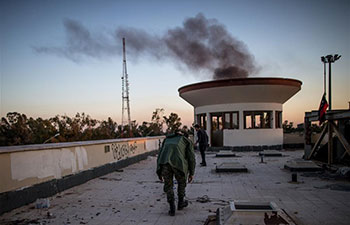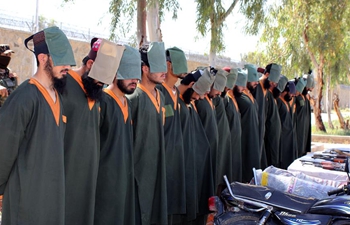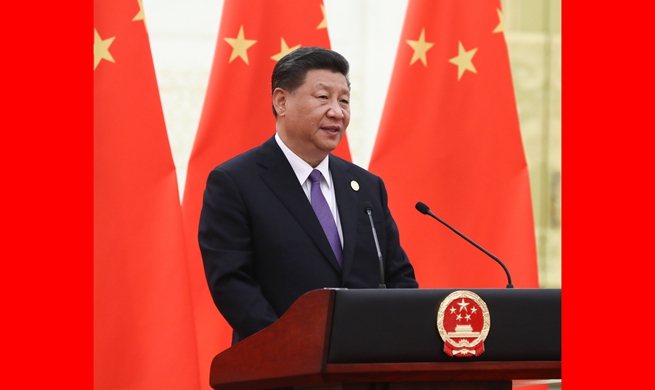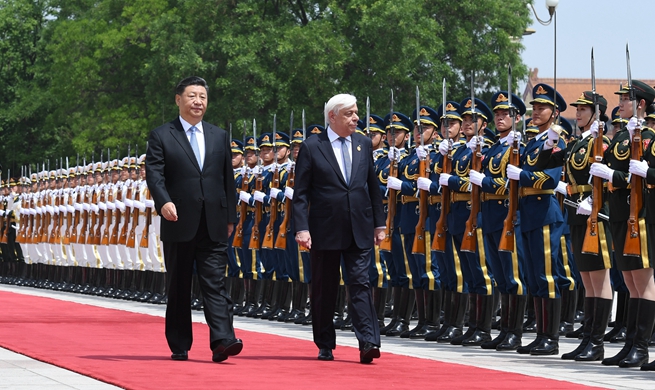ADEN, Yemen, May 14 (Xinhua) -- Yemen's government on Tuesday strongly condemned the Houthi rebels' drone attack targeting Saudi Arabia's oil pipeline booster stations.
"The attack on Saudi Arabia, which was carried out by the Houthi militia with a direct incitement from Iran, cannot be tolerated or met with silence," read a statement from the Yemeni government released by the state-run Saba News Agency.
"The Houthi attack is an outrageous breach of all peace efforts and threatens a collapse of all the UN's endeavors aimed at reviving the peace process," the statement said.
The government warned that the Iran-backed Houthis have become a real threat to regional and global security. "These are terror acts that don't differ from what any other terror group does," it said.
Yemen's internationally-recognized government affirmed its full support for all the measures that Saudi Arabia takes to preserve its security and counter all forms of terrorism.
The Houthi drone attack, the government said, made it necessary for the international community to act and do everything to immediately repulse this "terrorist group" and its supporters.
The Masirah, a television station run by Yemen's Houthi group, claimed responsibility for the drone attack.
"Seven drones carried out attacks on vital Saudi facilities in a large operation in response to the continued aggression and siege on our people," Masirah TV reported.
Houthi spokesman Mohammed Abdulsalam said on Twitter that the attack on Saudi oil facilities were a response to the Saudi attacks on his group, vowing Houthis' readiness to launch more such attacks.
Houthi rebels have launched dozens of drone strikes and ballistic missile attacks on Saudi cities in the past months to retaliate against the Saudi-led coalition's airstrikes on their positions.
Saudi Arabia has been leading a Sunni Arab military coalition against the Yemeni Shiite Houthi rebels since March 2015 to support the internationally-recognized government of President Abd-Rabbu Mansour Hadi after the rebels forced him into exile and seized much of Yemen's north, including the capital Sanaa.

















